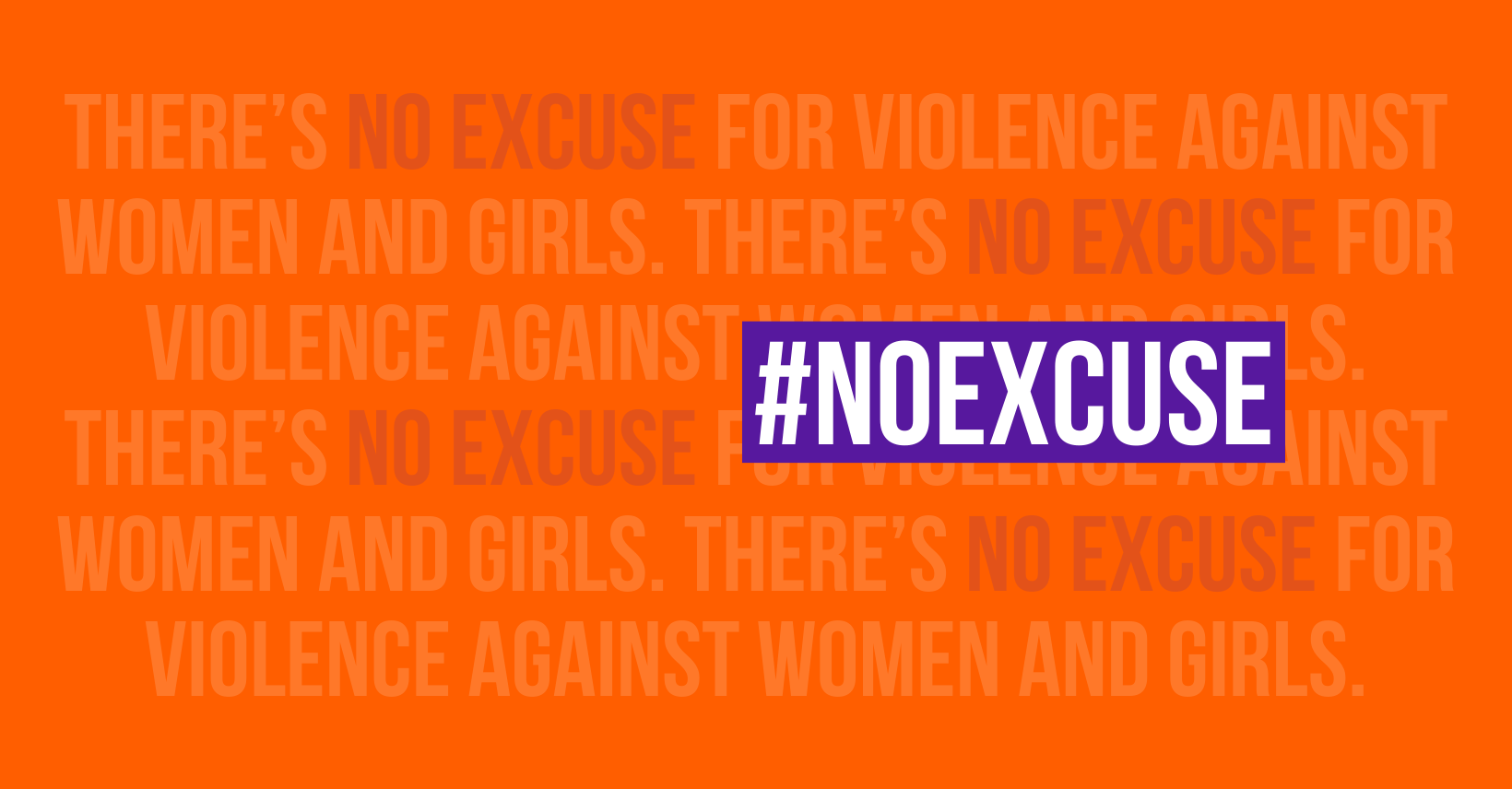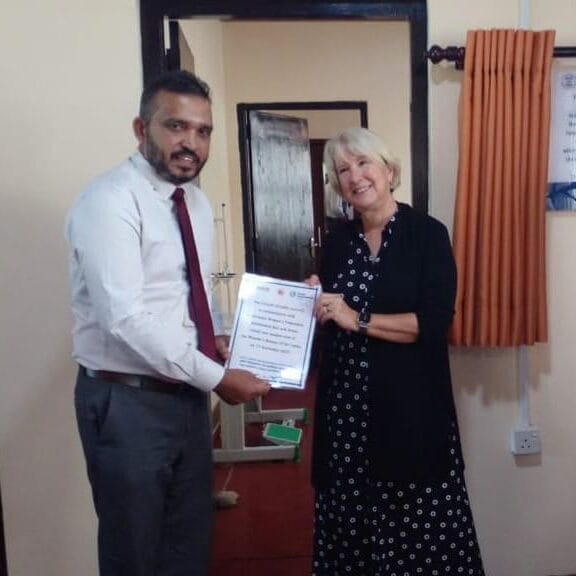News > Blog
Addressing Sexual and Gender-based Violence through Local Partnerships and Governance Systems: Lessons from Sri Lanka
Published 12/07/2023 by Global Communities

By Gigi Dupuy, Sr. Technical Advisor for Governance & Chioma Okafor, Sr. Technical Advisor for Local Capacity Strengthening, Global Communities
Since July 2018, Global Communities has implemented the Social Cohesion and Reconciliation (SCORE) program in Sri Lanka, funded by the United States Agency for International Development (USAID). One of the components of the program is advancing women’s rights and empowerment through advocacy and activism.
In 2020, Helen Hendry joined SCORE as a Community Participation Specialist. In addition to supporting women and youth as peace leaders, Helen works to strengthen locally led initiatives to prevent and respond to sexual and gender-based violence (SGBV) through psychosocial support and safe spaces for women and girls. SCORE is working in 14 districts, including Trincomalee and Monaragala. Helen grew up in the same region and is all too familiar with the challenges of SGBV.
“Violence against women is occurring among all ethno-religious groups living in the area,” Helen said, noting that many families in the region have suffered from displacement due to years of conflict in the country. They have never dealt with the mental trauma arising from the socioeconomic crisis that ensued.
Following the COVID-19 pandemic, Sri Lanka faced its worst economic crisis since the country’s independence in 1948. Several local women’s organizations reported an increase in the rates of SGBV. While the root cause of SGBV is power imbalance, Helen’s team’s research revealed that a loss of income, jobs and increased alcoholism among men were some of the key contributing factors to the rise of violence. Helen also observed that official data is likely an underestimate.
“Few women are willing to come forward or report incidents to the police,” she said. “They fear retribution, loss of income, losing their children, and even blame themselves for the violence.”
Data from the widely popular “1938” SGBV hotline, established in 2014 by the Ministry of Women, Child Affairs and Social Empowerment, also confirms that during the COVID-19 lockdowns the number of reported SGBV incidents increased.
In response, SCORE adapted its gender integration approach and provided small grants to two local women’s organizations – The Arunalu Women’s Federation (AWF) and the Trincomalee District Women’s Network (TDWN) – to implement SGBV prevention and response activities. Embedded in their communities, both organizations have acquired trust and credibility among community members.
Funding local organizations has shown to be an integral part of building strong support systems and expanding services for clients, while amplifying local leadership to foster sustainable change. As Helen points out, SCORE’s support filled an important gap given the limited government funding for SGBV issues. SCORE has also sought to increase government authorities’ role in SGBV response.
It is vital to support government institutions … to ensure sustainable services, which are severely restricted.
Helen Hendry, SCORE Community Participation Specialist, Global Communities
AWF’s SCORE-funded activity, “Supporting a Safe Space for Victims of Sexual and Gender-Based Violence in Monaragala,” coordinated with local authorities, civil society and community partners to establish a safe space for women and girls, including survivors of SGBV. To ensure sustainability, SCORE worked in close collaboration with the Women’s Bureau – a government institution which helped to establish and equip a safe house for women and girls in the Monaragala district.

If there was no safe house available, we would need to search for other support to find a safe dwelling, which might create further problems, or we [would] have to remain at home suffering from violence.
SGBV survivor, Monaragala District
The safe house provides accommodation for women fleeing abuse and offers empowerment activities, including workshops on livelihoods and income generation. AWF also provides women with information about their rights and legal aid. SCORE’s partnership with AWF has solidified efforts to ensure protection and special care for women and girls affected by SGBV, while bolstering their empowerment. R.D. Ranjanee, AWF’s president, emphasized that SCORE’s support also contributed to strengthening social cohesion by uniting members from all three ethno-religious groups – the Sinhalese, Tamils and Muslims – against SGBV.
Establishing a safe house definitely supported us in providing improved services to the survivors of SGBV.
R.M. Renuka Priyankani Ratnayake, Women Development Officer, Monaragala District
The other SCORE-funded organization, TDWN, focuses on strengthening women’s agency and helps them mobilize, advocate for their rights and influence government decision-making. Under SCORE, TDWN has strengthened the capacity of 45 government officials, including probation officers, women development officers and government counselors to address violence against women.
“Working with government institutions helps to ensure that survivors have trust in the system. It is essential that the government plays a leading role to enhance local ownership and reduce community stigma,” Helen said. “Even if TDWN provides legal support, we cannot be effective without [continued] government intervention.”
According to Helen, sensitization of government authorities is critical, because traditionally women have feared going to the police or to the hospital.
During the COVID-19 pandemic, TDWN realized that their clients who receive legal services needed a shelter to protect them from perpetrators while they made long-term resettlement plans. Using the AWF’s safe space as a model, TDWN plans to create a similar space for their clients.
SCORE’S SGBV programming and support to two of the region’s leading women’s organizations are illustrative of Global Communities’ commitment to locally led solutions and creating an enabling environment which ensures that local actors, including government authorities, are responsive to the needs of their communities.



